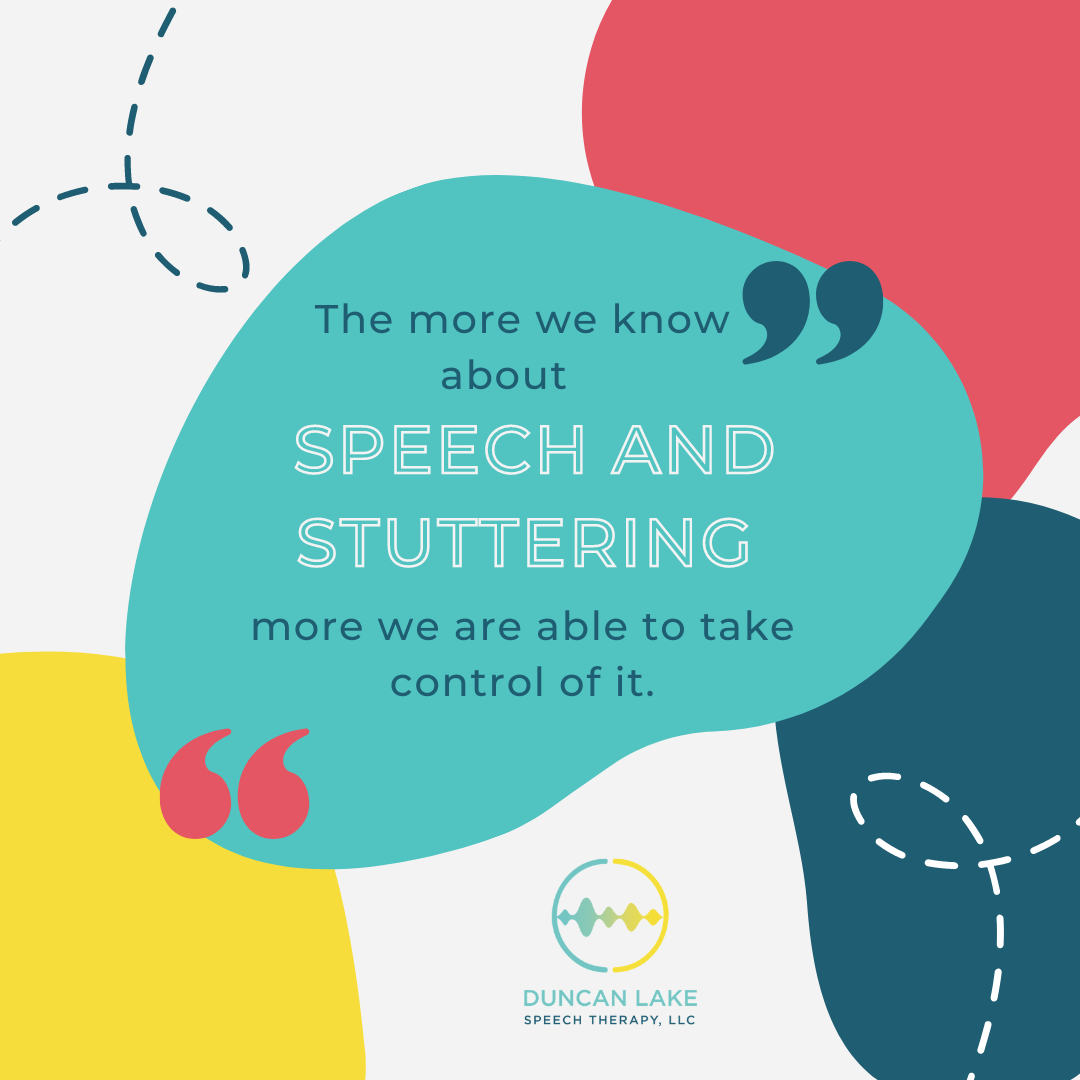
by Tami Teshima | Aug 25, 2023 | Stuttering
by Anna Dubiak, M.S, CCC-SLP Duncan Lake Speech Therapy, LLC Stuttering can cause a lot of big feelings in individuals who stutter as well as the parents of a stuttering child. One crucial part of stuttering therapy for these cases can be adding in desensitization....

by Tami Teshima | May 10, 2023 | Stuttering
Bethany Barber, M.A., CCC-SLP Duncan Lake Speech Therapy, LLC If you were a fly on the wall during my sessions with fluency clients, the first few minutes might look more like I’m leading a preschool physical education class, or a mommy and me yoga hour than a speech...

by Tami Teshima | Apr 3, 2023 | Stuttering
By Hannah Blackwell, M.A., CF-SLP Duncan Lake Speech Therapy, LLC Have you ever seen a picture of an iceberg? It floats on the water as this giant chunk of ice. There’s no denying that what you see of an iceberg above the water is huge, but below the waterline looms...
![Stuttering persistence factors [by Shelagh, our summer graduate intern!]](https://duncanlakespeechtherapy.com/wp-content/uploads/2021/07/Stuttering-Persistence-Factors.png)
by Tami Teshima | Jul 14, 2021 | Stuttering
This week, we are are so lucky to have Shelagh Orlikowski, the DLST Graduate Intern, here to talk with us about stuttering. When SLPs determine that a child has a fluency disorder (our term for stuttering), one of the first questions parents ask us is, “Will...

by Tami Teshima | Aug 26, 2019 | Stuttering
If you’re a speech-language pathologist, there is a strong chance that you’ve been asked about stuttering by concerned parents. A lot of parents want to know what’s “normal” when it comes to stuttering and their child. Others ask questions like, “Should we just wait...




![Stuttering persistence factors [by Shelagh, our summer graduate intern!]](https://duncanlakespeechtherapy.com/wp-content/uploads/2021/07/Stuttering-Persistence-Factors.png)


Recent Comments